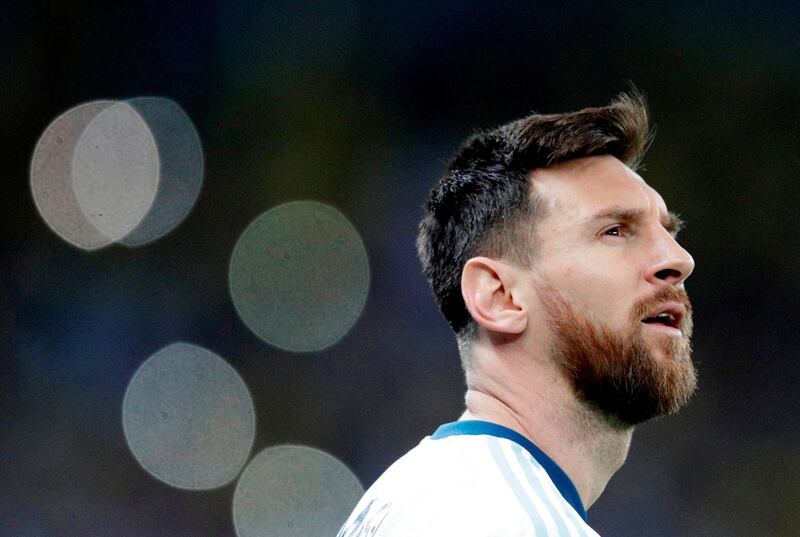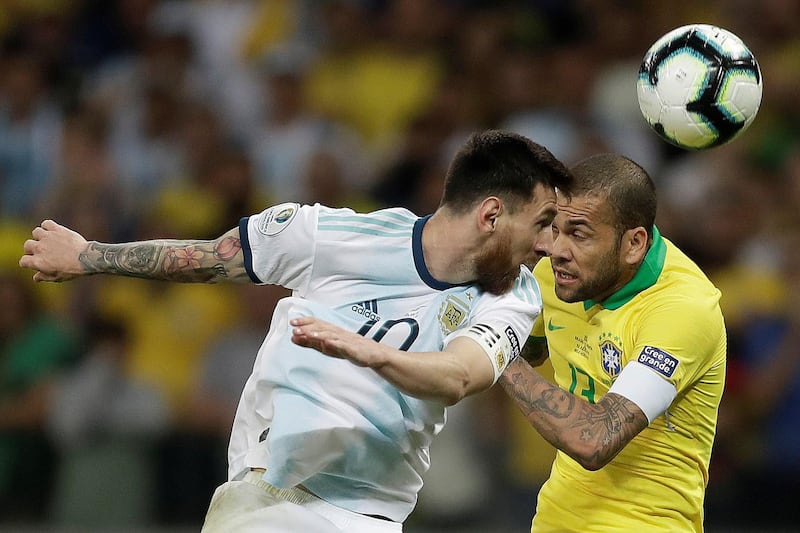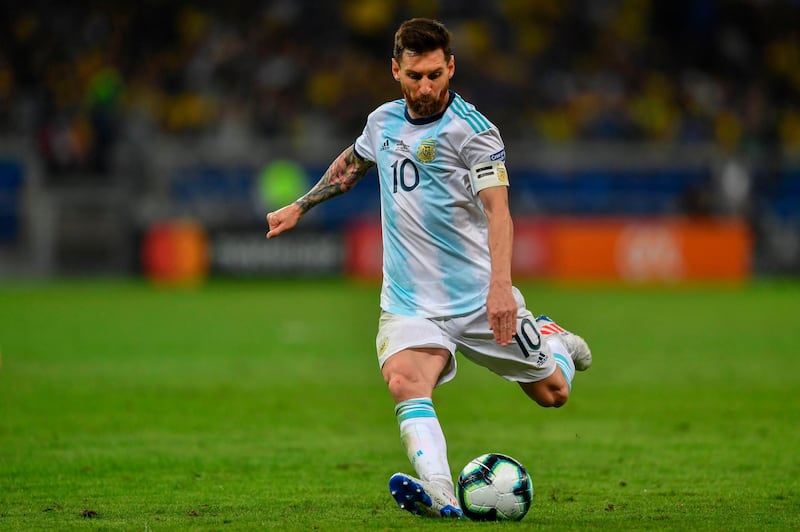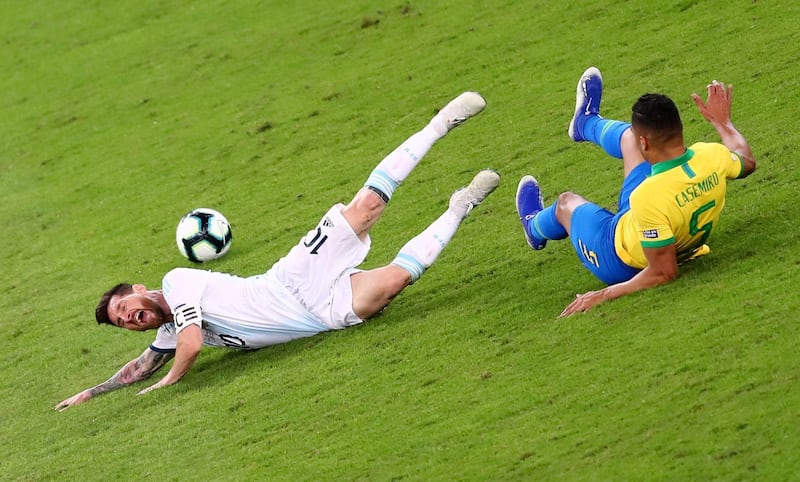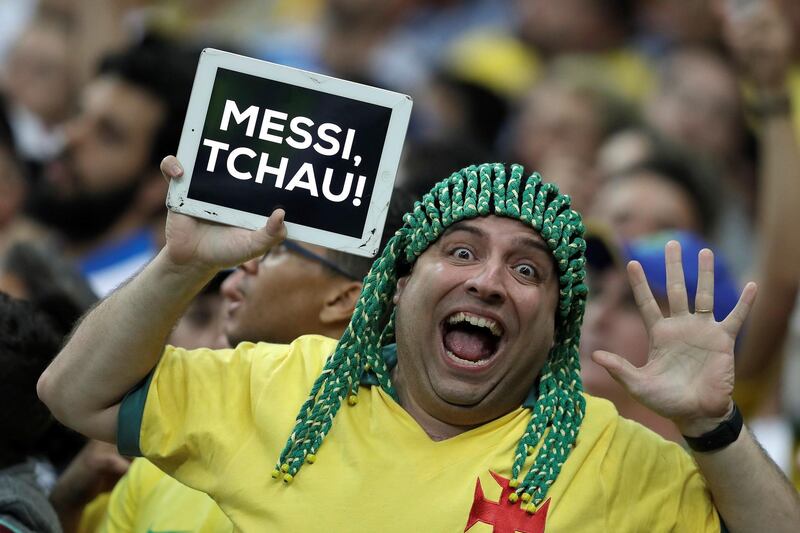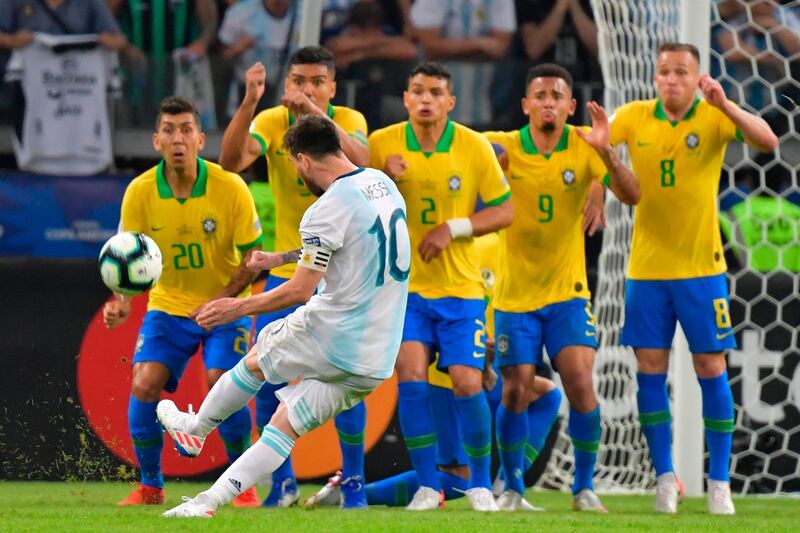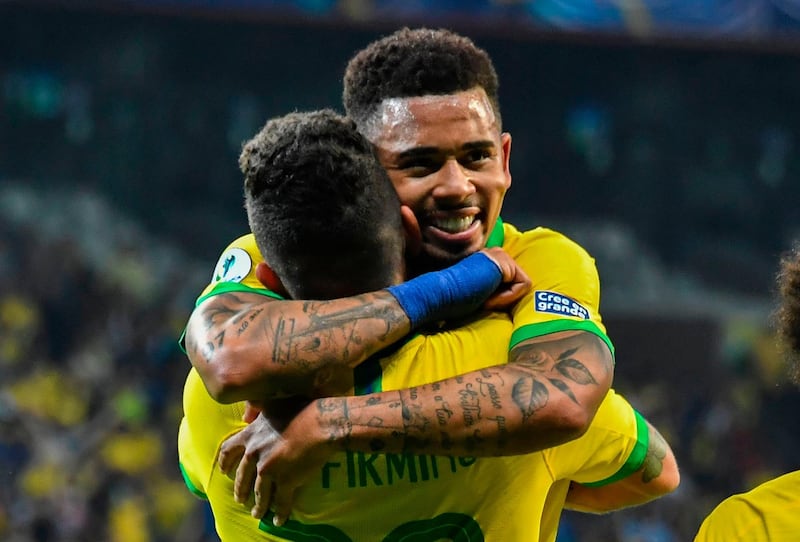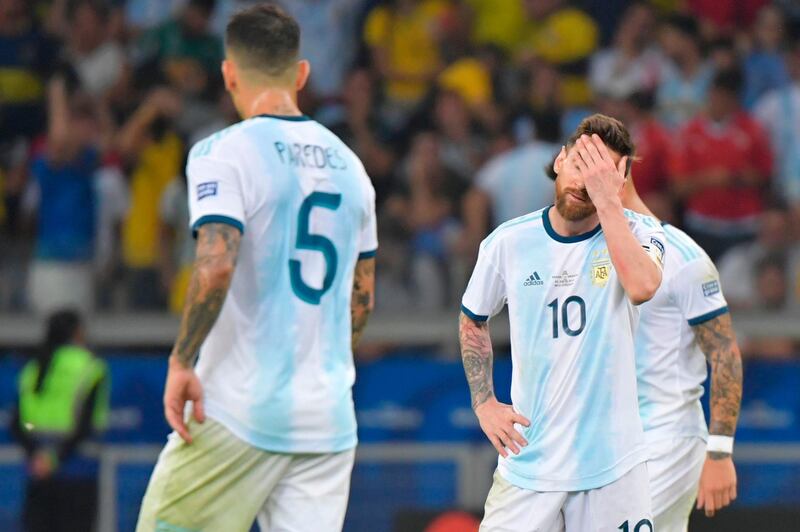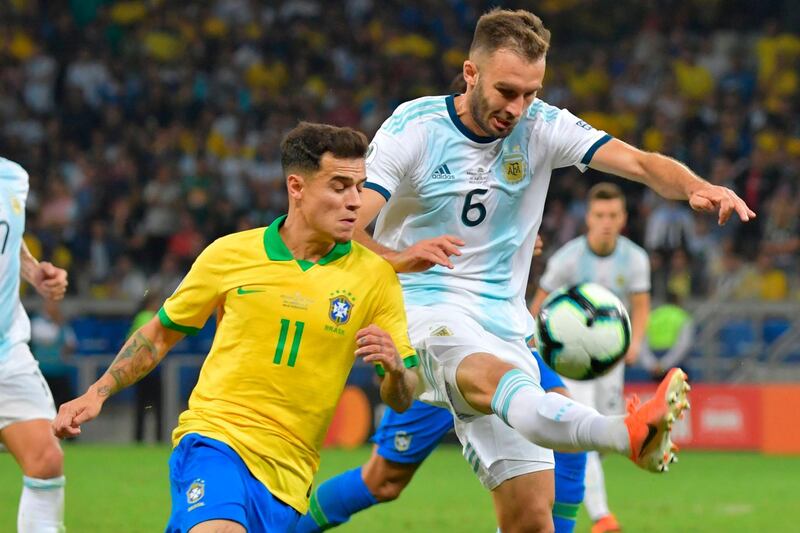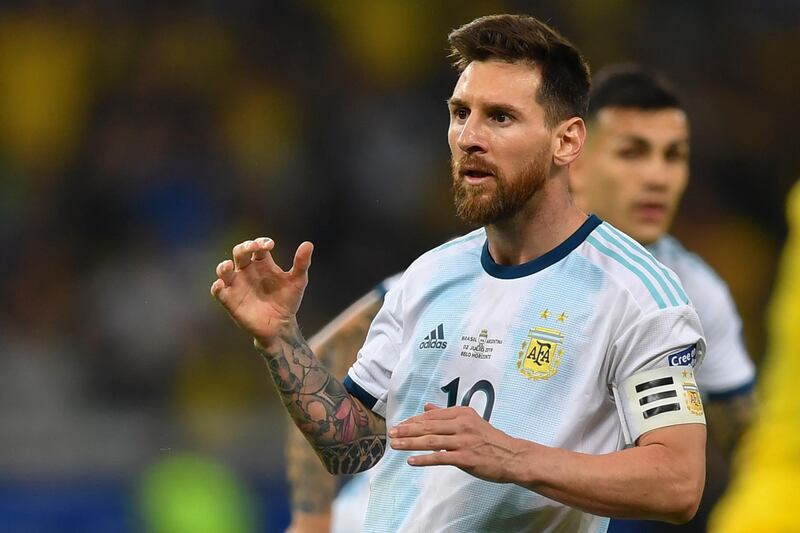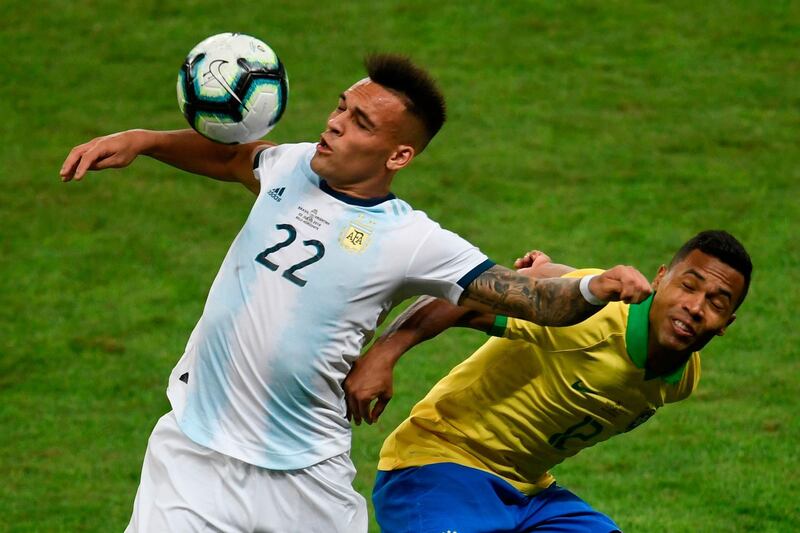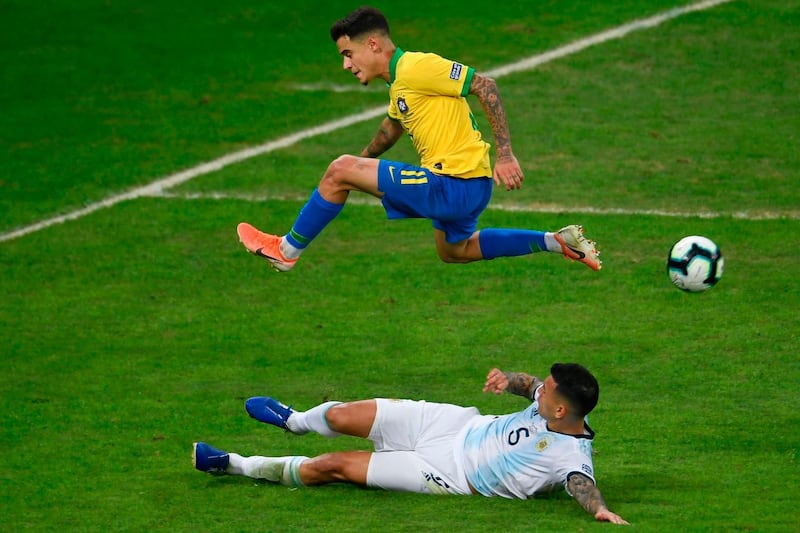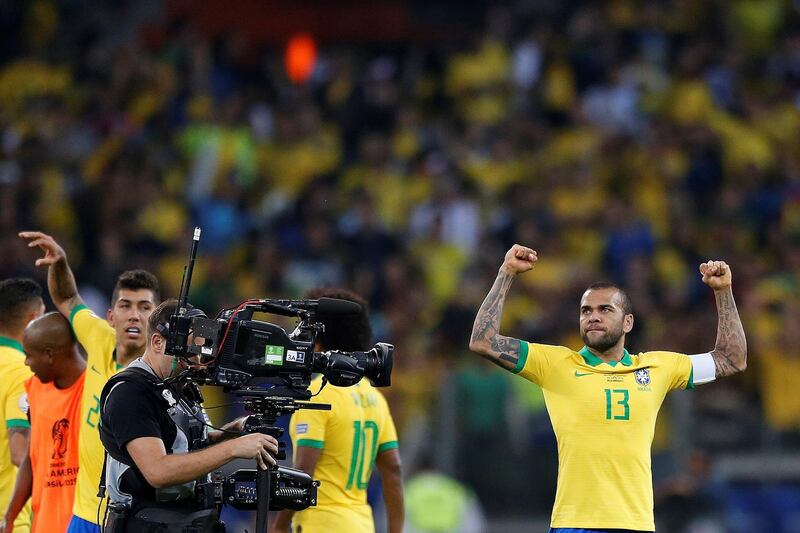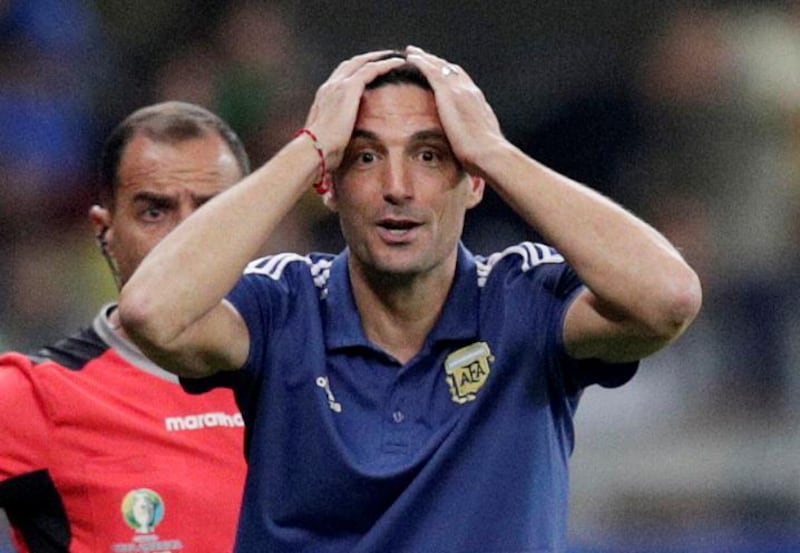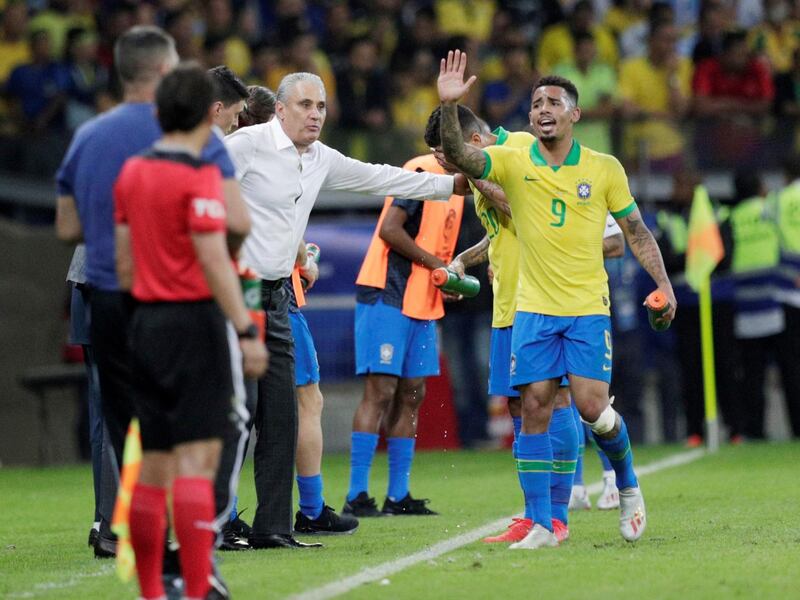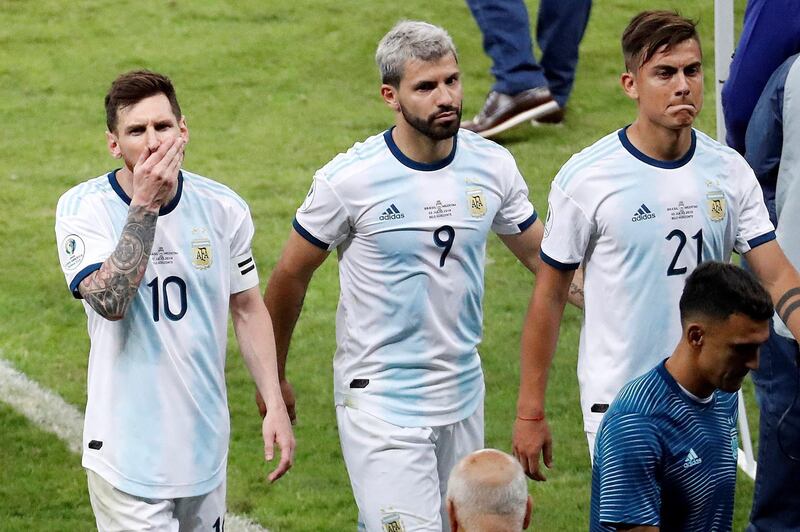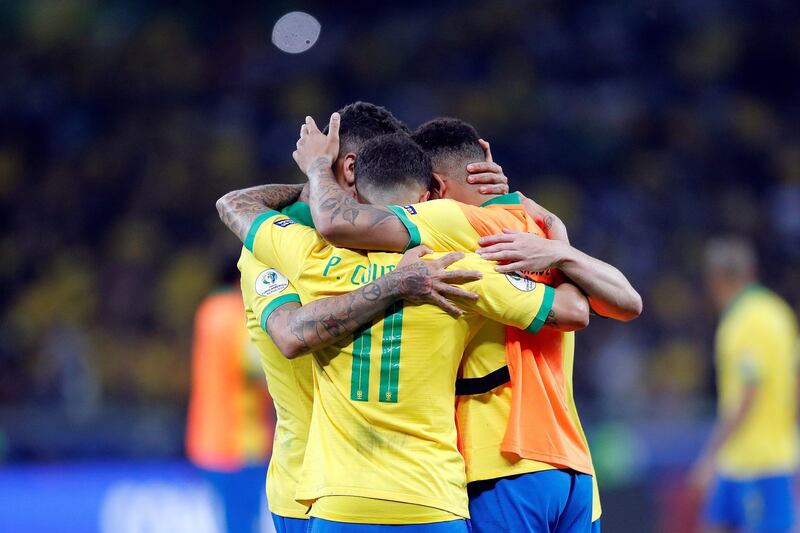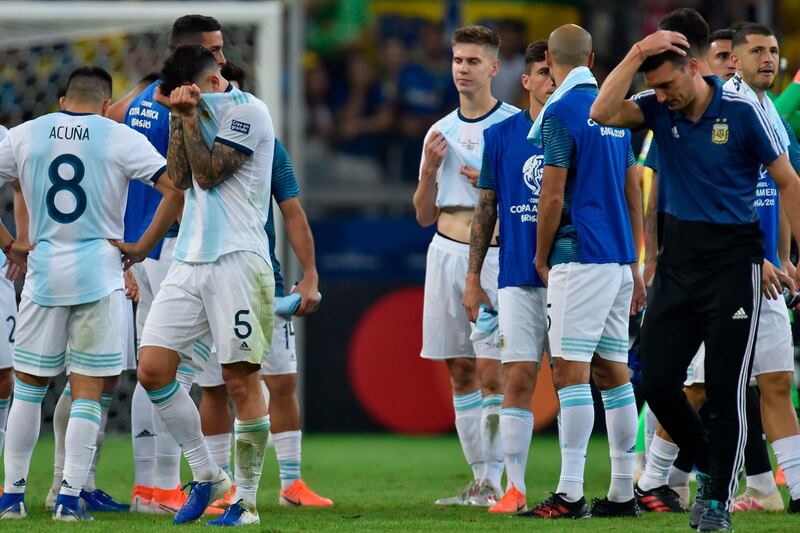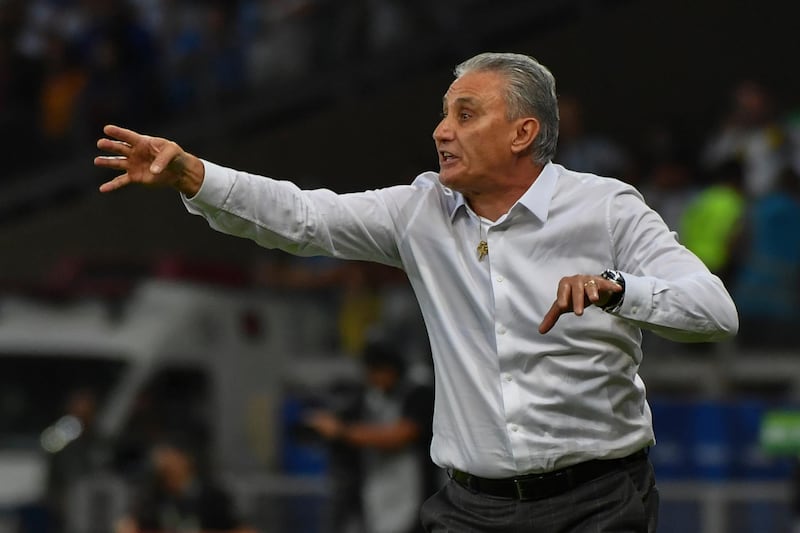Once upon a time this was the most incendiary, combustible match in world football.
Brazil versus Argentina, a tie that in 1939 saw a penalty being taken into a empty net because the opposing team had walked off the pitch in protest; a tie so steeped in history it has featured hat-tricks from Pele and Lionel Messi, and seen Diego Maradona sent off; a tie that in 1990 saw a player’s water-bottle spiked with Rohypnol and, a year later, a tie that produced five red cards.
On Monday night, National Firefighters Day in Brazil, it was hoped a Copa America semi-final between the hosts and their fiercest rivals would provide some fireworks of old. It did not disappoint, yet the fact it was ever in doubt tells its own story: of an uninspiring Brazil shorn of superstars, of a talented but disjointed Argentina that enrages more than enraptures, of a pair of serial-winning nations that have now gone more than a decade without any meaningful silverware.
52 jogos somados! O Brasil 🇧🇷 não perde um jogo da #CopaAmerica depois de abrir o placar desde 1979, quando perdeu em La Paz 1-2 contra a Bolívia. pic.twitter.com/g4pgmoddLv
— Copa América (@CopaAmerica) July 3, 2019
The two countries that traditionally play football to force you out your seat, that turn young children with a fleeting interest into diehard fanatics, are at risk of losing their charm.
Many Brazilians have shown a mix of apathy and aversion to their national team for some time. An Argentine fan meanwhile joked before kick-off he would rather his side lose to Brazil because otherwise they would only proceed to lose to Chile in a third successive Copa America final.
Two teams steeped in success who share seven World Cup titles and 22 Copa America titles are turning their support base into pessimists. Both had lurched into the last-four here: Argentina, after a forgettable group stage, squeezing past Venezuela; Brazil, despite scoring eight times in a weak group, requiring penalties to progress after a stalemate with a poor Paraguay.
In a sold-out Mineirao, of course, all was forgotten; the old rivalry returned.
Inside the same stadium where Brazil lost their last semi-final 7-1 to Germany to rob the world of a World Cup final clasico, passion painted the faces of the 52,225 unsegregated fans. Argentina's anthem was drowned by jeers; Brazil's - as is now custom - prolonged into its second verse.
🇧🇷 Zizinho 33
— Copa América (@CopaAmerica) July 3, 2019
🇧🇷 Taffarel 25
🇧🇷 Djalma Santos 22
🇧🇷 Roberto Carlos 21
🇧🇷 DANI ALVES 18
Dani Alves se metió en el quinto lugar entre los jugadores que más duelos disputaron para Brasil en #CopaAmérica.
The atmosphere was raucous and deafening. Argentina always brings strong support, but for a clasico, the volume amps up to 11. The intensity seemed to infect the players and it took just nine minutes before a yellow card was produced.
Argentina’s caretaker manager Lionel Scaloni did little to calm his team, racing the length of his technical area to angrily dispute the booking. A few moments later, Leandro Paredes squared up to Philippe Coutinho. The little Barcelona midfielder did not back down, but neither did he bite - instead he bided his time.
With Paredes suitably wound up, Coutinho slipped the ball through his legs and fed Dani Alves, the 36-year-old with the energy of a man half his age. After dancing past two players, Alves laid off Roberto Firmino, who crossed for Gabriel Jesus to break the deadlock.
It was a brilliant team goal and a beautiful reminder that while it may be against Brazilian tradition, superstars are not essential to success. Maybe they did learn from the 7-1 after all.
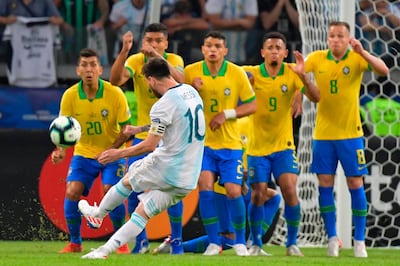
Argentina have not beaten their northern nemeses in a major competitive fixture for 14 years, but while they edged possession they rarely looked like progressing to Sunday’s final. When Jesus demonstrated strength and perseverance on the counter with 20 minutes to go and repaid Firmino’s earlier assist, it was game over.
Messi, who enjoyed vocal support from both sets of fans throughout, struck a post in the second half and was referred to as an extraterrestrial by Brazil manager Tite. He will go home without a trophy once more and whether he hangs around to contest a Copa America on home soil next summer, we will likely only find out next week.
Scaloni, however, was confident.
“That was the most aggressive Argentina team I have seen in a long time,” Scaloni, who received his second yellow card of the tournament, said proudly. “Sometimes football is unfair - we should have a team going to the final.
"Losing sometimes can have positive aspects though and if we focus on the performance, definitely we will take a step forward on the right path.”
For Tite, the final cannot come soon enough. His team, yet to concede this summer and having lost just twice in 41 games, heads to the most famous stadium in the country for a moment the manager has been waiting for since taking the top job three years ago.
"People ask me: 'Did you play ball?' Yes. 'Did you play at the Maracana?' No. Now I'm going to truly be a coach of the national team because now I am going to coach at the Maracana for the first time. And in a Copa America final. I can't wait."
And it being a final, fireworks are guaranteed.
